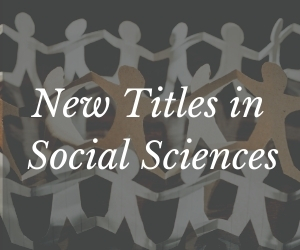In developing an enlightened socio-economic-political environment, this book provides a new socio-economic-political system based on (i) Collective Capitalism (CCP) of cooperatively managed institutions and enterprises, and (ii) a Civilian Democracy (CDM) sans political parties, whereby the most qualified representatives of all the functional sectors of the community get elected to the local legislature. It also specifies a new economic-political structure in the form of autonomous functionally-sustainable communities (FSCs), within regional economic zones (REZs) and self-reliant regional unions (SRUs, such as the EU). This system of FSCs, REZs and SRUs will come under the aegis of (and collectively represented by) a World government, over-seeing the development of a comprehensive charter of human rights and social justice for all the people of the world. The neo-humanistic integrated system of CCP and CDM, to be implemented within FSCs, will provide grass-roots socio-economic-political empowerment, contrary to the system of centralized economic and political governance.
This book serves as a valuable teaching, learning, knowledge and research resource for (i) a holistic approach to a sustainable living environment promoting collective welfare, and (ii) a multi-stage road-map towards a world government system for unification of all the communities of the world into one global cooperative. The combined system of socio-economic democracy (involving knowledge and conscientious governance executives elected by and directly representing the various functional sectors of FSCs) and world government will help transform the current undignified north-south socioeconomic order into a democratic and equitable globalization order, for collective social security towards achieving sustainable local and global peace.
Contents:
- From Under-Development to Self-Reliance:
- Introduction: A Kaleidoscopic Survey of Under-Development and Its Solution
- Third World Under-Development and Need for Self-Reliance
- Functionally-Sustainable Communities: Socio-Economic-Political Framework
- Neo-Global Political Governance Structure
- Functionally-Sustainable Community (FSC) Design
- From Corporatism to Cooperatism, and Power-Politics to Peace-Politics:
- For an Enlightened Human Society
- Corporate Capitalism to Cooperative Capitalism and Social Democracy
- State and Group Terrorism, Justic and Reparation
- Ethics of Politics: Politician versus People Sovereignty
- From United Nations to World Government
- Real Democracy and Neo-Humanistic Global Order:
- Socio-Economic Democracy: Governance, Economic and Financial Policy
- Truly Democractic Electoral Governance System and Global Political Structure
- Human Rights and Constitutional Guarantees
- Civilian-Centered Neo-Humanistic Global Order
- Towards Universal Renaissance:
- Neo-Humanistic University System
- Replacing Hypocrisy by Straightforwardness
- Sustainable Global Peace with Equitable Globalization
- Strategizing the Role of the University in Society
- Epilogue: Towards a Neo-Era of Peace, Security and Enlightened Living
Readership: Academics, politicians, sociologists, economists and business developers, as well as socially conscious people.
























